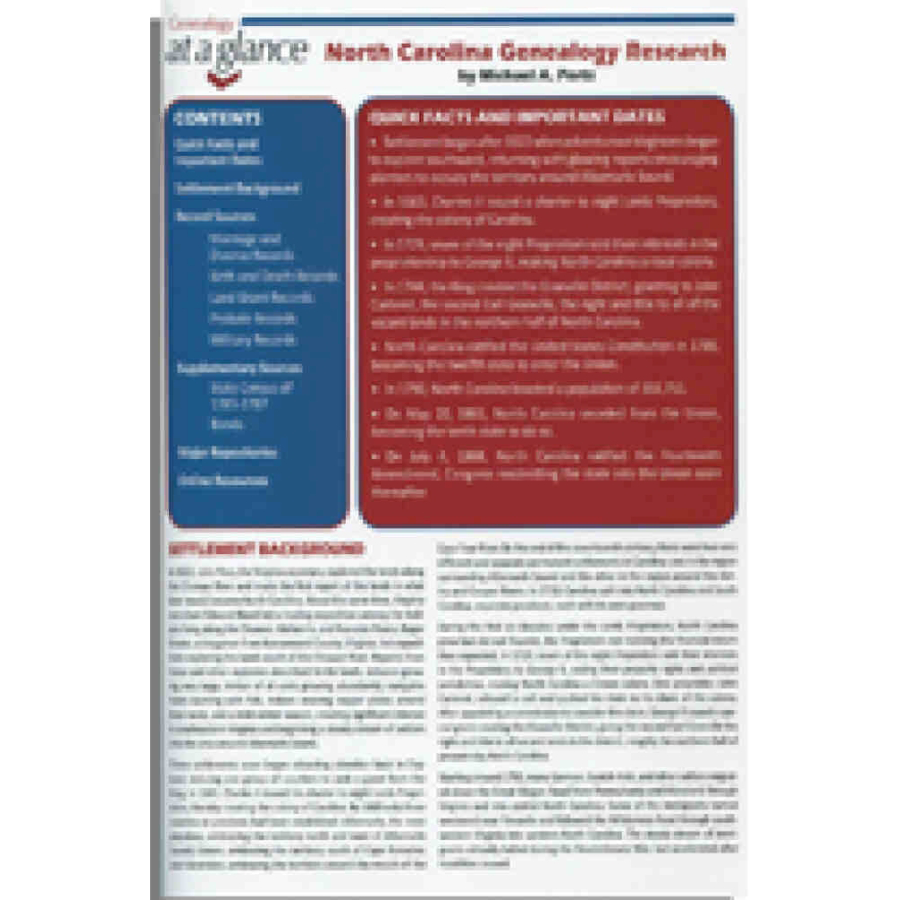Genealogy at a Glance: North Carolina Genealogy Research
Couldn't load pickup availability
Chartered by the English in 1663, the colony of Carolina split into North Carolina and South Carolina in 1710. Its development was gradual, but settlement started to increase around 1750 when many German, Scotch-Irish, and other settlers migrated down the Great Wagon Road from Pennsylvania and Maryland through Virginia and into central North Carolina. Some of the immigrants turned westward near Fincastle and followed the Wilderness Road through southwestern Virginia into western North Carolina. Migration routes were well established by the end of the 18th century, after county jurisdictions had been carved out and before certain western counties were ceded to the federal government to form the state of Tennessee.
For anyone undertaking research in the Tar Heel State, therefore, this North Carolina Genealogy at a Glance (GAAG) explains that genealogical research must start at the county level, going back to 1663 with the formation of Albemarle County. Designed as a quick guide to genealogical research, North Carolina Genealogy Research teaches that the general rule of thumb is to start in Raleigh at the North Carolina Office of Archives and History, which houses original or microfilm copies of most county records. Genealogical records on the county level are surprisingly complete, and this GAAG focuses on the records found on the county level that will be of most help in your genealogical research: marriage and divorce records, birth and death records, land grant records, probate records, and military records. In each case, tips for further research are included, key publications are cited, and the background of the records is placed in historical context.
A very useful guide for the beginner, North Carolina Genealogy Research also includes a list of the main books for further reference and a list of the principal online resources that are indispensable in genealogical research. In addition, it contains a comprehensive list of North Carolina repositories and their websites, giving addresses and phone numbers as well.
Michael A. Ports
2014, 8.5" x 11", laminated and folded, 4 pp.
ISBN: 9780806320038
102-4666
